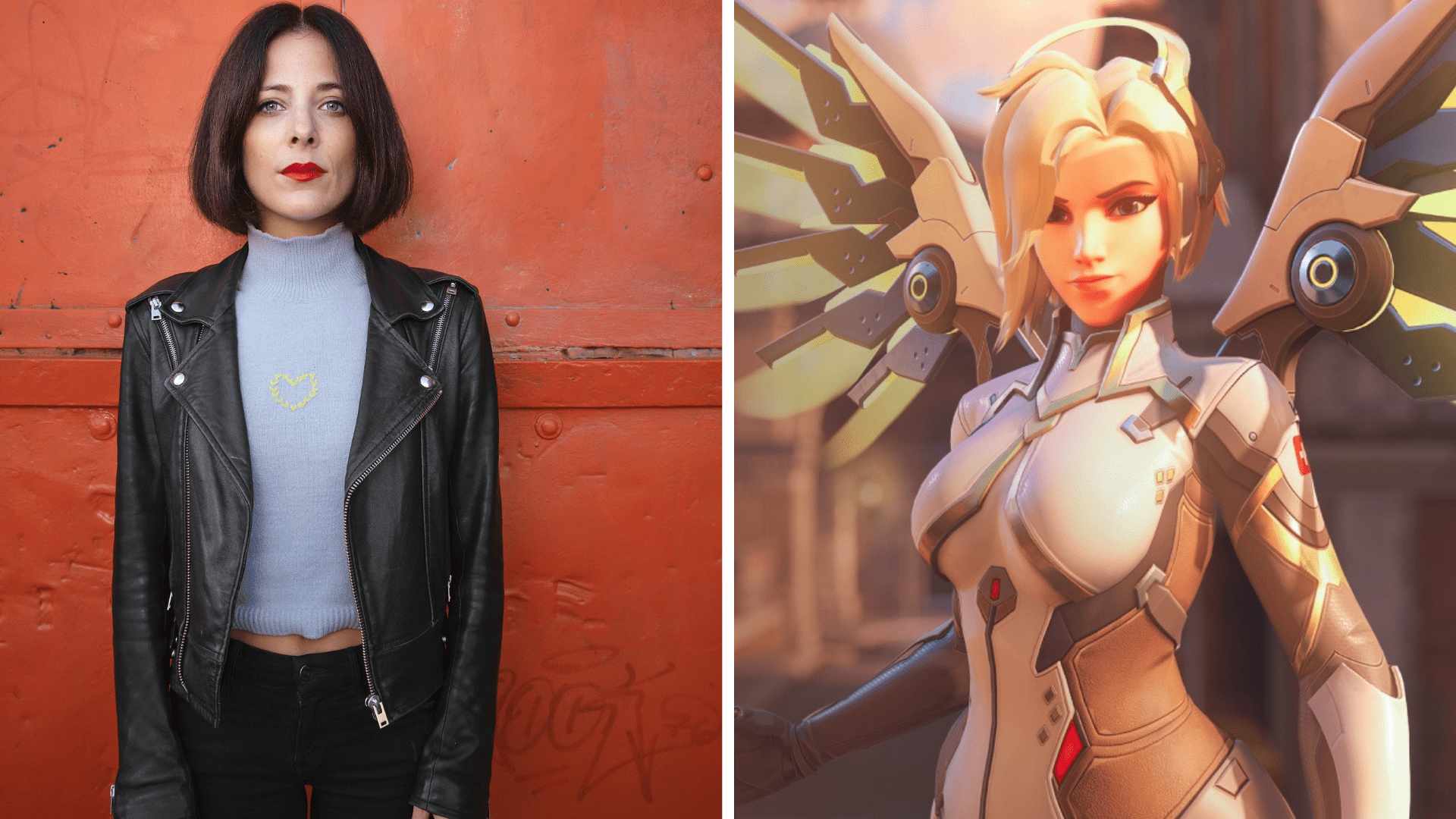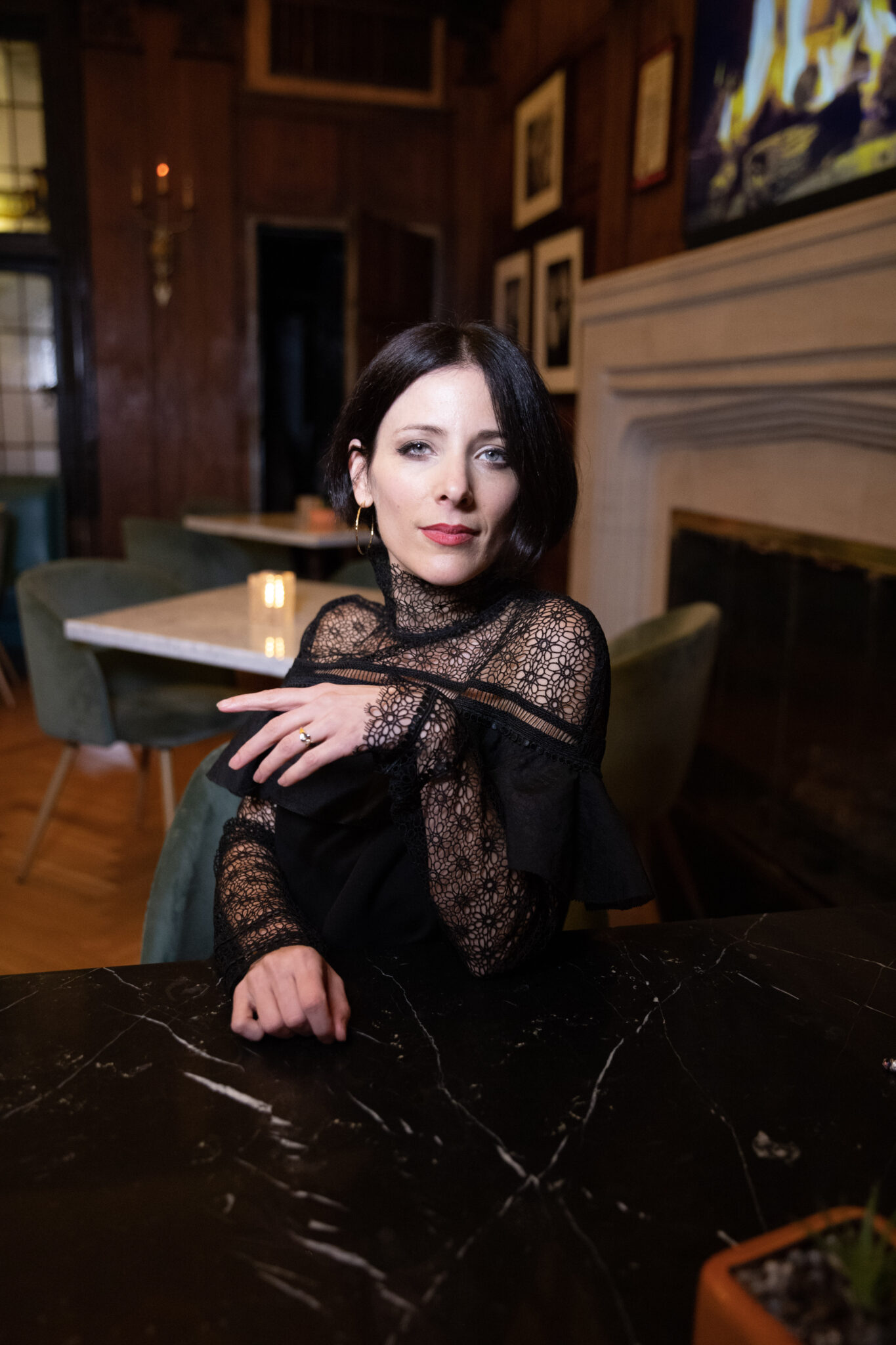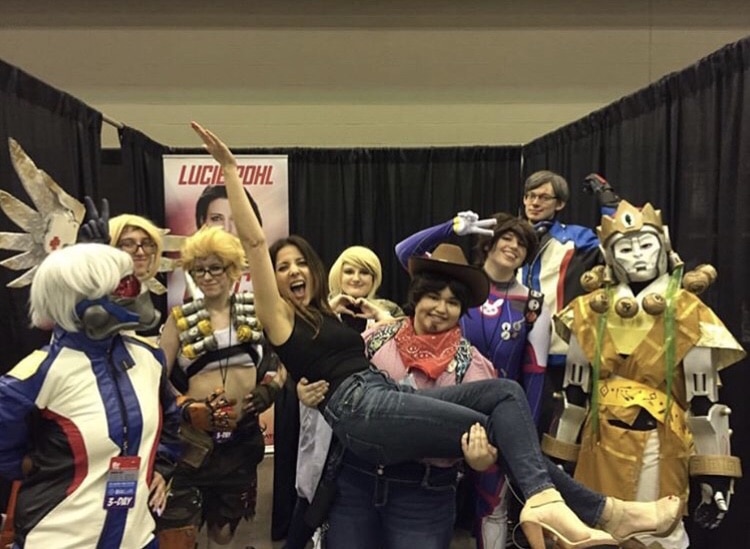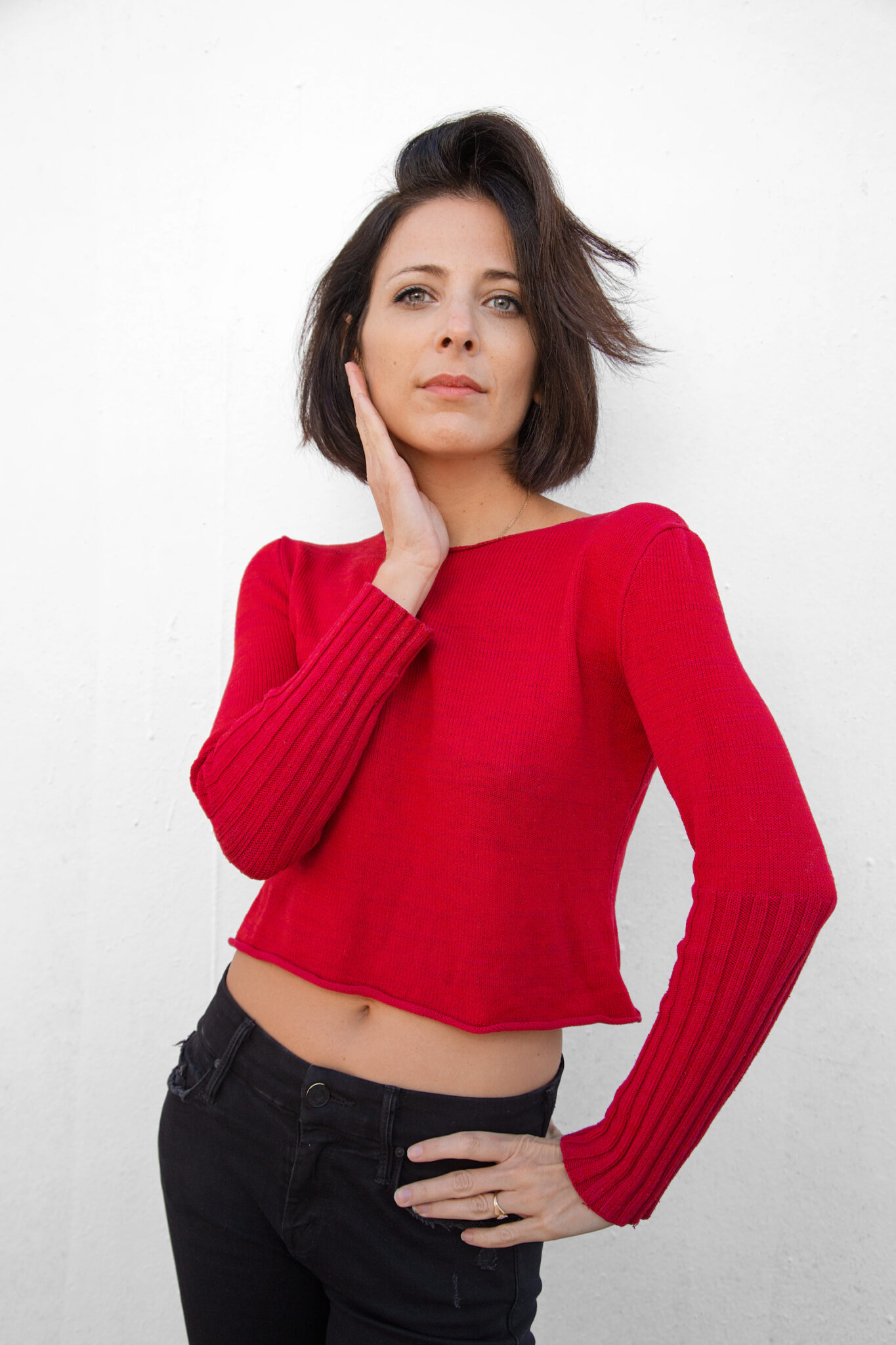
Lucie Pohl reflects on Mercy being an LGBTQ+ icon and how Overwatch changed her life
Lucie Pohl’s life was destined to turn upside down the moment she stepped foot in the recording booth to voice lines for a character known as Angela Ziegler, aka Mercy from Activision Blizzard’s hero-shooter, Overwatch. The character has become larger than life, and is a fan-favourite due to her altruistic nature and ability to see the good in others.
But even before she stepped into the role of Mercy, the voice actress and comedian has always believed in giving and supporting others, especially the little guy. Growing up as an immigrant woman who looked after her father, who struggled with diabetes, Lucie has always donated to organisations that help benefit those particular issues. She also is a firm supporter of LGBTQ+ issues.
More recently, Lucie has been involved with Stream for a Cause’s Overwatch 2 Charity Tournament as a special guest.
We got the opportunity to speak to Lucie about her career in comedy, what she (and didn’t) expect when stepping into the role of Mercy, and what makes Overwatch and Mercy so appealing to the LGBTQ+ community.
Gayming Magazine: Hello Lucie! It’s been several years since Overwatch came out. How has becoming Mercy shaped those years for you?
Lucie: Oh my god, I mean I’m always saying Mercy and entering into the VA, Overwatch, and gaming world has completely changed my life on so many different levels. Before I first started voicing Mercy, I really didn’t know much about the gaming world. I didn’t know how big of an impact video games made on people. I obviously played video games as a kid, but you know, kind of basic stuff. I hadn’t really been around that world at all in a long time, so I really didn’t know much about the video game world. And I think I had, y’know, a sort of biased view on video games, like “you know, that’s just for people who live basements!” And I didn’t really know anything about it. And as always, when you don’t know much about something, you form opinions based on nothing.
Then, once you get to know that thing, you realise, “oh, this is totally different than I thought it was.” So when I started voicing Mercy, the thing that really changed my life the most was the community of people that I got to meet and be around, and the stories I would hear. The way I saw Mercy impacted people, inspired people, made people happy, gave people joy…
I’m an immigrant in the United States, I was eight when we moved here. And so this feeling of ‘being an outsider’ is something that’s very near and dear to me, because I felt that way my whole entire life. And I got to learn that a lot of gamers are people that don’t really fit in, in one way or another, and are looking for community and are looking for maybe an escape, but also a place where they feel they are seen. Because a lot of people don’t live in places like New York or big cities where more people express themselves freely.
So, you know, this was kind of a chance for them to dive into fantasy worlds to meet people that love that same type of expression and world that they inhabit and form communities and feel understood andmeet people who don’t fit into the boxes they are told we need to fit in to as boys and girls and non-binary people, and all of that.
So, life-changing stuff?
Profoundly. I got to know a whole new world of people, and I found a new community and then, on a practical level, I travelled the world and got to go to Comic Cons and I got to meet a lot of amazing colleagues in the industry, people who have done voice work for a long time.
I was an actor for a long time. And comedy has been comedy for a long time. But the voice work is something so unique because it really doesn’t matter what you look like or what people perceive you to be when you walk through the door or when you get up on stage, which is something that acting on camera, stage acting, or comedy – which is live – is always something you’re up against. That’s kind of the beauty of voiceover work, that’s not in your way. And so I got to voice a tall blonde woman with big boobs, which is not what I look like in real life at all!

You’re also known for being a kick-ass comedian, so you must be very quick and witty. Have you ever ad-libbed or suggested a line for Mercy?
To be honest with you, I don’t really know what makes its way into the game because we record a lot of stuff, and we don’t really know when they’re going to use it. [But] I definitely have. I’ve been joking for a long time that I want Mercy to have, that’s the line that just goes, “Oh, just go heal yourself.” So I’ve made jokes like that. And who knows, maybe they’ll make them into the game, or maybe not. But they definitely suggested Mercy has a sassy side to her, but I think they also realise that really works really well for me, the sassy side and the jokes. So I think that’s probably influenced them as well, and doubling down on that or adding more lines, because they knew I was able to take [Mercy] in that direction. A lot of times writers will try something out and go, “okay, this doesn’t really work.” And then when it does work, they’re like, “right, we’ll do more of that”, so it’s a collaborative thing, always.
Has your experience as a comedian ever helped as a voice actress?
Absolutely. Because you only have your voice to express the emotion and the inner life of your character. Timing is also a big part of voice acting, especially in animation, I think maybe more so than in video games. And also the big changes within a line that you see that sort of make you laugh, because there are unexpected big changes in emotion. And I think, you know, timing and delivery is such a huge thing in comedy, that it’s hugely helpful for the voice work. I think that’s why a lot of comedians doing voices on big animated films, and, and all that. Directors and creators always look to comedians for voice work, because they understand timing and delivery.

Do your find that your fans from Overwatch, and fans of your comedy, often overlap?
Well, I feel like a lot of the Overwatch fans have come to see my comedy, and have gotten into comedy, because they’ve come to see my comedy. Because a lot of the video game fans that come to see me will say afterwards it was their first comedy show, or that it’s not something that they ever really were into, and then they get more into it.
So every once in a while at a comedy show, I’ll pull out like a couple of Mercy jokes, then there’ll be like two people in the audience that are like “what!” because they didn’t know that I was the voice of Mercy. I wouldn’t say they really overlap, but I think when they do, though, it’s always really fun. And I think that some people that knew me as Mercy have gotten curious about comedy. It’s always fun to do the live comedy shows during Comic Con and fans will come out.
Mercy is a very popular character with the LGBTQ+ community. Did you expect that going into your role as Mercy?
No, I really didn’t expect anything to be honest with you going in. Like I said, I had so little knowledge of the world. And so I didn’t expect that at all. It makes sense to me, looking at her now and sort of the storylines, and also [Mercy’s] personality. I guess she’s a very accepting person. I think that’s what she kind of stands for as well. She’s a very open minded person, I think, at least. So it makes sense to me, but no I didn’t expect it.
What do you think it is about Mercy that appeals to fans? You mentioned her compassion, but is there anything else?
Yeah I think that what’s really great about Mercy, what I really love about her, and I’ve said this before, is that she’s a very three dimensional character. And, you know, some people may laugh at that, because she’s so sort of tropey in her sex appeal, like, a female video game character with big boobs, pretty and all that…

But I actually think what’s unique and really cool about Mercy is that she’s very, very feminine, but she’s also really a badass, she’s tough. She has a very soft voice, she’s angelic in many ways, but she’s sassy. So she’s all these things that you wouldn’t necessarily put together. And I think that’s what real people are; nobody’s just one thing. Nobody’s just a nice person, or just a bad person or just sexy or just frumpy. People have dimensions and have different sides to them, and are complex and have contradicting character traits a lot of times, and that’s what makes human beings interesting and cool.
I like the fact that she’s very educated, yet embodies something very motherly. You know, those are things that, in our collective conscience of how women are portrayed in the media, that’s something just starting to change. Like you can be motherly and maternal, and a CEO, and kind of a crazy, badass scientist who knows her shit. You can have a gun and blast players, and yet on the flip side, resurrect and heal them. You can be snarky and sassy and yet super caring, and soothing. All those things can come together. And I really like that. So I really love about her, that she’s so feminine, and yet breaks out of the stereotype of what we perceive that to be in many ways.
Overwatch completely surprised gamers with its gender, race and sexual diversity back in 2016. It’s 2023 now. What are your thoughts on how representation and diversity continues to develop over time?
I think that, for example, The Last of Us TV show, is a really great example of how things are changing in the mainstream. You know, I think the reason why, for me, The Last of Us TV show is so exciting right now is because it’s not an indie film, you know? It’s not a niche show for gay people, or for deaf people. No, it’s meant for the mainstream. And that’s exciting because we’re getting to see stories that usually are reserved for one group of people. And I think what’s so cool about what’s happening with The Last of Us and the success of it, is that it’s showing those gatekeepers this is what people want to see. And these are stories that need to be told. And it’s not diversity for the sake of diversity. These are the people around us.
And you know, watching the love scene between Nick Offerman and Murray Bartlett was not beautiful just because it was a gay love scene between two men that we hadn’t seen before. But because when we see sex scenes in the mainstream, the focus is so much on the female body and the sexual fantasies of straight men. And what I thought was so beautiful was just seeing the different bodies and just seeing a love story that touches you, and it doesn’t matter if they’re male and female, or male and male or female and female. Yet it does matter in the sense that we never get to see this, and it’s dumb – that’s such a basic word, but that’s all I can think of – but it’s dumb because we want to see this. And this is what changes people’s mindset that don’t have any friends that are gay, that don’t know what it’s about, that think it’s something weird, because they don’t know what it is. I grew up around LGBTQ+ people, my whole life. My parents are artists, so there was always theatre people and people that were transgender, or LGBTQ around me since I was a kid. So it was never anything that I was afraid of, or didn’t know about. But I know that a lot of people don’t grow up like that, and don’t have that sort of exposure. And to put this into the mainstream, it matters because this is real. These are real people.
So I think that video games are sort of making bigger strides in a way than Hollywood, so I feel like the rest of the entertainment industry is sort of waking up to that. And seeing the many different types of stories out there that can be told, and we’ve kind of limited ourselves to certain kinds of stories, and not that those stories we’ve seen before shouldn’t be told, but I think that it’s time to open up what we see in the mainstream and, and tell the stories that weren’t allowed to be told before.
Find out more about Lucie Pohl and her work over at her official website.






